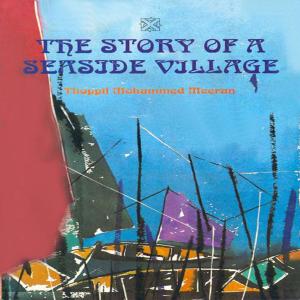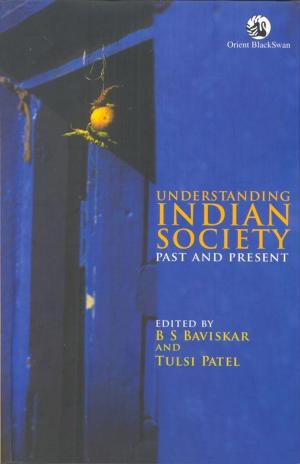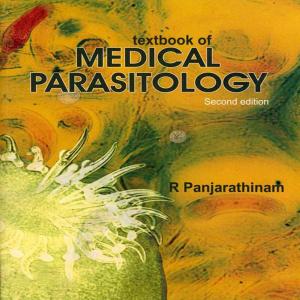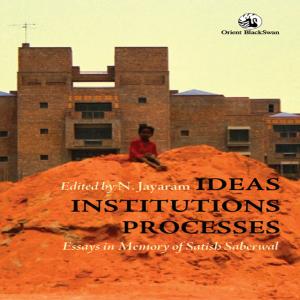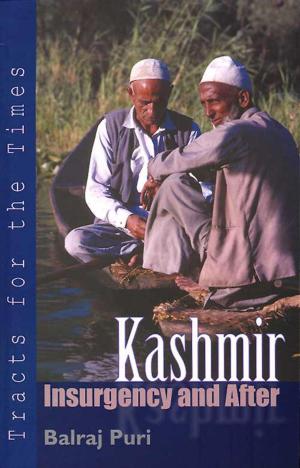The Toda Landscape
Explorations in Cultural Ecology
Nonfiction, Social & Cultural Studies, Social Science, Anthropology| Author: | Tarun Chhabra | ISBN: | 9788125060260 |
| Publisher: | Orient Blackswan Private Limited | Publication: | October 29, 2015 |
| Imprint: | Language: | English |
| Author: | Tarun Chhabra |
| ISBN: | 9788125060260 |
| Publisher: | Orient Blackswan Private Limited |
| Publication: | October 29, 2015 |
| Imprint: | |
| Language: | English |
The Toda people of the Nilgiris District in south India are one of the oldest indigenous groups in South Asia; they are also reportedly among the most studied and written-about in the region. While the field was dominated by Western scholars in the beginning, Indian researchers and writers began contributing to Toda studies from the early twentieth century.The Toda Landscape: Explorations in Cultural Ecology represents a major breakthrough in Toda studies. From his interactions with the Todas from 1990 onwards, the author, Tarun Chhabra, has collected and analysed ethnographic data that had eluded even the greatest of Western ethnographers. Through his first-hand narrative accounts of important Toda rituals, ceremonies and routines, all accompanied by visual documentation in the form of photographs and maps, he provides new data that will significantly aid the preservation of Toda traditional culture.The Toda Landscape highlights previously unknown aspects of Toda cultural heritage: • Their sacred geography—sacred waters, sacred hills, and sacred trees and rocks. • Some sacred institutions, which have their own distinct, hitherto undocumented, rituals, and the intricacies of their traditional attire and embroidery motifs. • The entire domain of Toda ethnobotany. • The complex interweaving of myth and reality in Toda lives, evidenced in the routes Toda spirits are said to follow to their afterworld.With its detailed descriptions of sparsely documented aspects of Toda life, all complemented with stunning photographs, The Toda Landscape is an invaluable addition to the field of social anthropology and cultural studies. Its focus on ethnobotany and the flora and fauna of the Nilgiris region will also greatly help students and scholars of environmental studies and botany.
The Toda people of the Nilgiris District in south India are one of the oldest indigenous groups in South Asia; they are also reportedly among the most studied and written-about in the region. While the field was dominated by Western scholars in the beginning, Indian researchers and writers began contributing to Toda studies from the early twentieth century.The Toda Landscape: Explorations in Cultural Ecology represents a major breakthrough in Toda studies. From his interactions with the Todas from 1990 onwards, the author, Tarun Chhabra, has collected and analysed ethnographic data that had eluded even the greatest of Western ethnographers. Through his first-hand narrative accounts of important Toda rituals, ceremonies and routines, all accompanied by visual documentation in the form of photographs and maps, he provides new data that will significantly aid the preservation of Toda traditional culture.The Toda Landscape highlights previously unknown aspects of Toda cultural heritage: • Their sacred geography—sacred waters, sacred hills, and sacred trees and rocks. • Some sacred institutions, which have their own distinct, hitherto undocumented, rituals, and the intricacies of their traditional attire and embroidery motifs. • The entire domain of Toda ethnobotany. • The complex interweaving of myth and reality in Toda lives, evidenced in the routes Toda spirits are said to follow to their afterworld.With its detailed descriptions of sparsely documented aspects of Toda life, all complemented with stunning photographs, The Toda Landscape is an invaluable addition to the field of social anthropology and cultural studies. Its focus on ethnobotany and the flora and fauna of the Nilgiris region will also greatly help students and scholars of environmental studies and botany.





